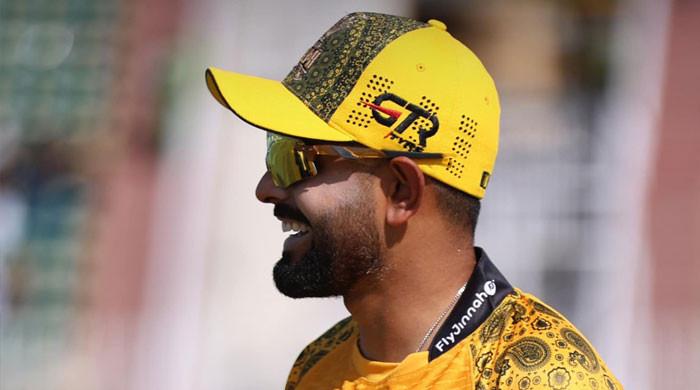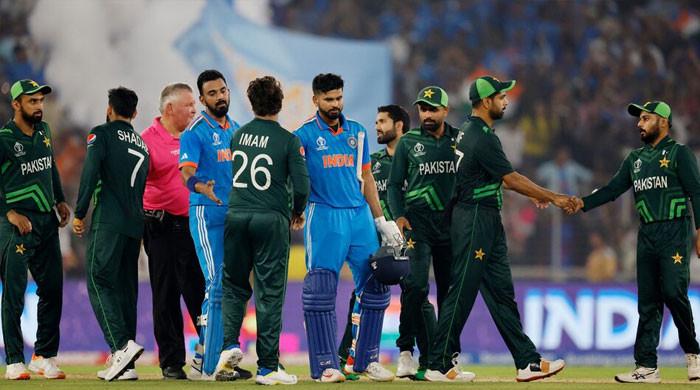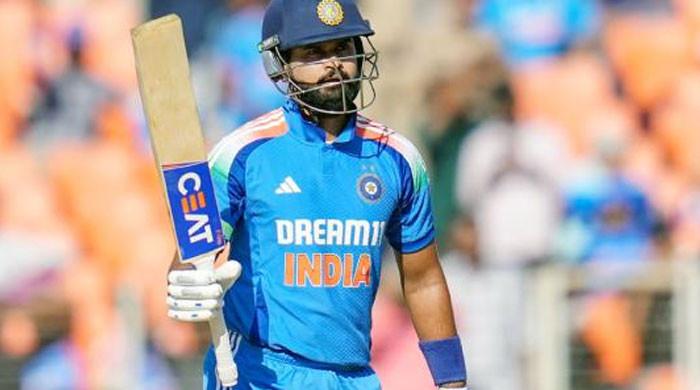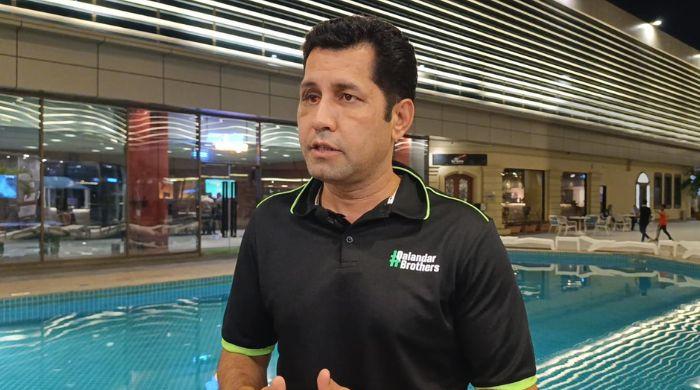Pakistan look to rise after hitting new low in T20 World Cup
Unforeseen shifts in the cricket dynamic were neither good for the team nor the management
August 20, 2024

Presently, the Pakistan cricket team has hit a new low. Shortly, after the 2023 ODI World Cup, Babar Azam was removed from captaincy by the ex-chairman of the PCB, Zaka Ashraf, and instantly replaced by Shaheen Shah Afridi.
Under his captaincy, Pakistan in a five-match T20I series in New Zealand, managed to win only one game. As soon as the team returned, a new management emerged out of the blue and Mohsin Naqvi was appointed as the new PCB chairman . However, Babar Azam was once again appointed captain of the white-ball side and under him Pakistan failed to qualify in the Super Eight of the T20 World Cup.
These unforeseen shifts in the cricket dynamic were never good for the team or the management either. I believe that Shaheen should have continued to be the captain at least till the World Cup since one good or bad series can't stereotype him.
Babar as a captain had three T20i series before the ICC T20 World Cup 2024 including the first one at home against New Zealand. The series tied 2-2 against the second-string side as most of the players were busy in the Indian Premier League (IPL).
For the series against Ireland and England, the Pakistan cricket team experimented with some new players, including Irfan Khan Niazi, Usman Khan, and Azam Khan.
Pakistan's planning against Ireland looked ordinary and they suffered defeat in the first T20 game. Athough Pakistan then bounced back as relatively stronger, However, I doubt that it would have increased any morale for the Pakistan team.
Furthermore, the next series against England was tough but two matches were omitted due to rain whilst the other two were miserably lost.
Fortunately, Pakistan seemed good in sticking to their plan to open with Saim Ayub, who could win any match given the conditions. Henceforth, young Azam Khan can win matches alone. They were both given good chances by the Pakistani team before the World Cup, and it seemed that they would eventually be in the playing 11.
Pakistan's spin attack was the most concerning as Babar was relying heavily on Shadab Khan, who lost confidence as a bowler . However, the mystery spinner Abrar Ahmed, who could have been Pakistan's biggest trump card, was barely given any chance before the World Cup.
According to the World Cup schedule, Pakistan was in a weaker group with only India as the main team and other associate teams such as Canada, Ireland, and the USA. Pakistan were potentially the favourite for the Super 8 as two teams would have qualified for it.
The start of the World Cup was nothing short of a nightmare for Pakistan as they first played against the USA. Initially, they dropped Saim Ayub, whom they had supported for the past three series and said he was definitely going to be our opener for the World Cup.
They compelled him to play 23 T20 games without any success. They dropped him in such a mega event for which they were grooming him.
In my opinion, Pakistan selected the wrong XI, especially considering the captain mentioned at the toss that there was a lot of moisture on the pitch. It was surprising that they didn’t include an extra spinner. Pakistan managed only 159 runs and clearly struggled against the spinners. Looking at Pakistan's bowling line-up, it was heavily reliant on pace bowlers, and perhaps some thought that 159 would be enough against the USA team, but this proved incorrect. Even under those conditions, Pakistan’s spinners, particularly Shadab, failed to perform and were unable to support the pace attack effectively.
Pakistan certainly were let down by their spin department.
The USA eventually tied the game and proceeded to score 18 runs in the super over against veteran pacer Mohammad Amir, which Pakistan failed to chase.
The second match against India was a significant one. Surprisingly, Azam Khan was dropped from the side. This decision clearly highlighted that Pakistan's plans and preparations over the past 3-4 months had been overshadowed. Pakistan appeared to be trying something new. They won a crucial toss and opted to bowl first. The Pakistani seamers bowled superbly, dismissing India for just 119. It seemed as though Pakistan would comfortably chase the target, but with a purely defensive approach, they fell short. Remarkably, they played out all 20 overs but only managed to score 113 runs, with three wickets still in hand.
Pakistan stood victorious in the remaining two games against Canada and Ireland. Fortunately, Babar played till the end against Ireland or it would have tanked badly.
This situation arose due to the sudden management reshuffle in the last quarter. However, was it really necessary to bring back retired players to represent the country in the World Cup? Was it essential to request someone to leave the UAE and play for Pakistan? This suggests a lack of confidence in domestic players and tournaments. Furthermore, dropping key players like Saim Ayub and Azam Khan underscores that despite nearly four months of preparation for this major event, Pakistan's management failed to trust their own planning.
Following the World Cup, Pakistan made several changes, particularly within the selection committee, removing Abdur Razzaq and Wahab Riaz. Recently, the new selection committee announced the squad for the Test series against Bangladesh, led by Shan Masood, who showed great promise in his last series against Australia. This will be Pakistan's first international cricket series since the 2024 World Cup in the USA.
The writer is former first class cricketer and ex-captain of Pakistan Under-19 team
Disclaimer: The viewpoints expressed in this piece are the writer's own and don't necessarily reflect Geo.tv's editorial policy.











